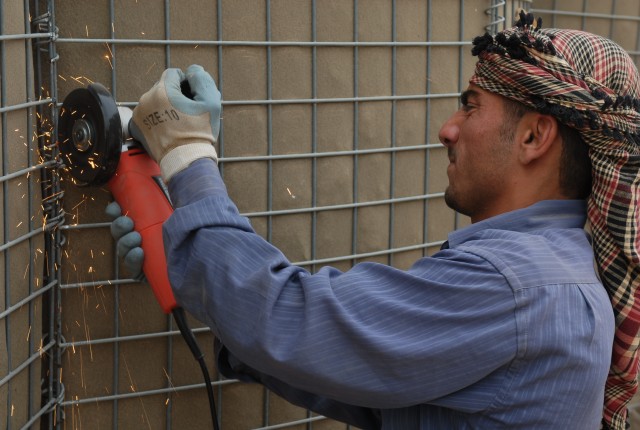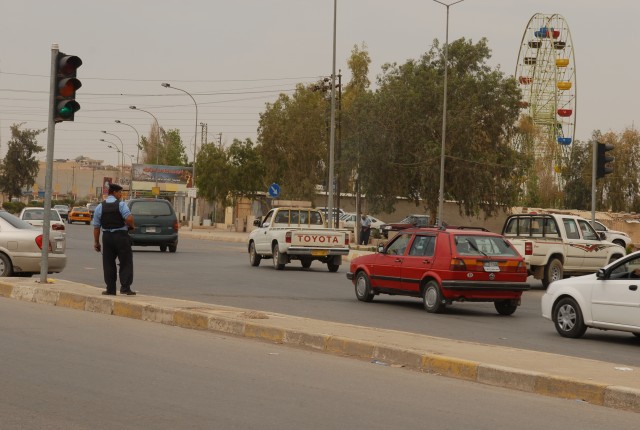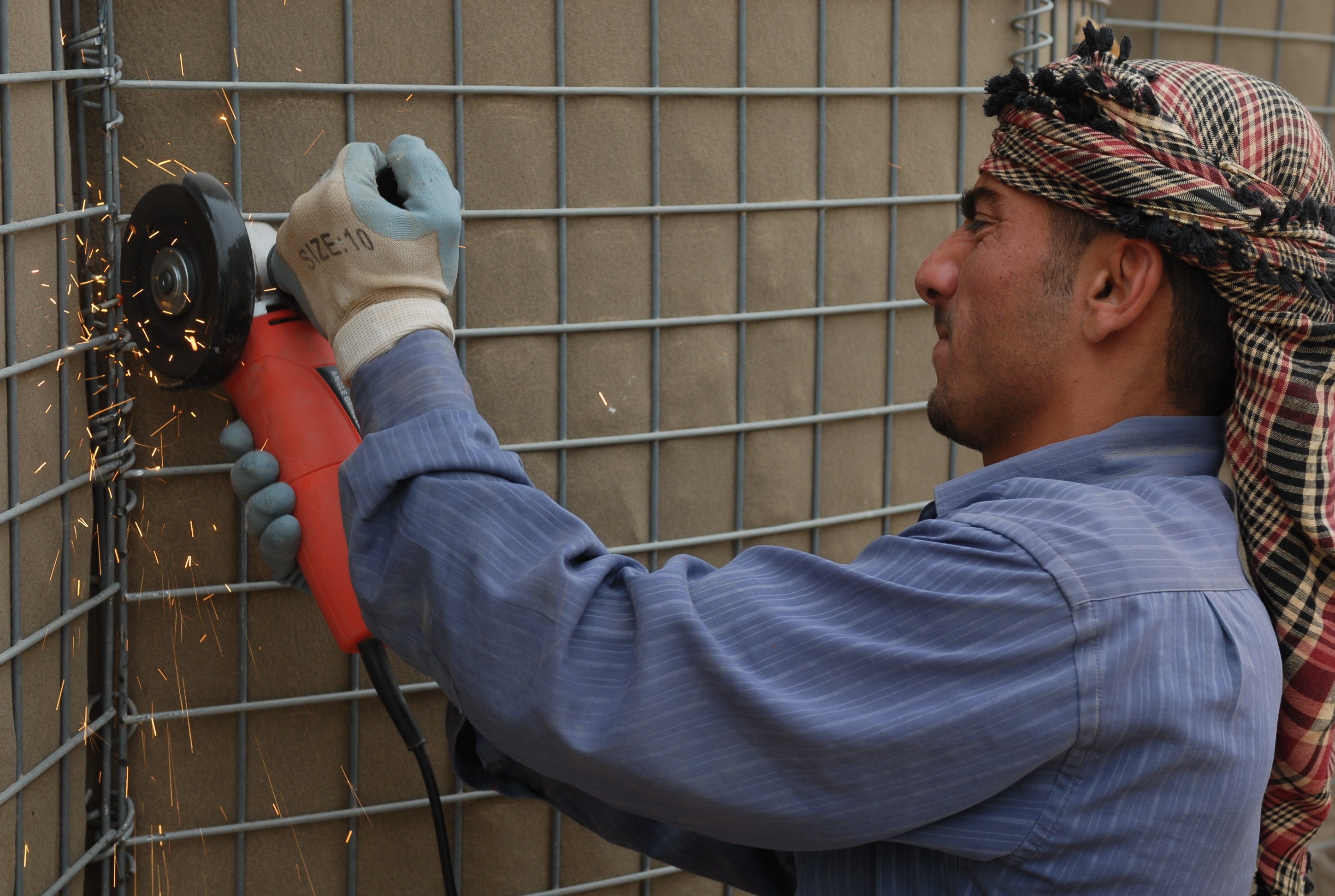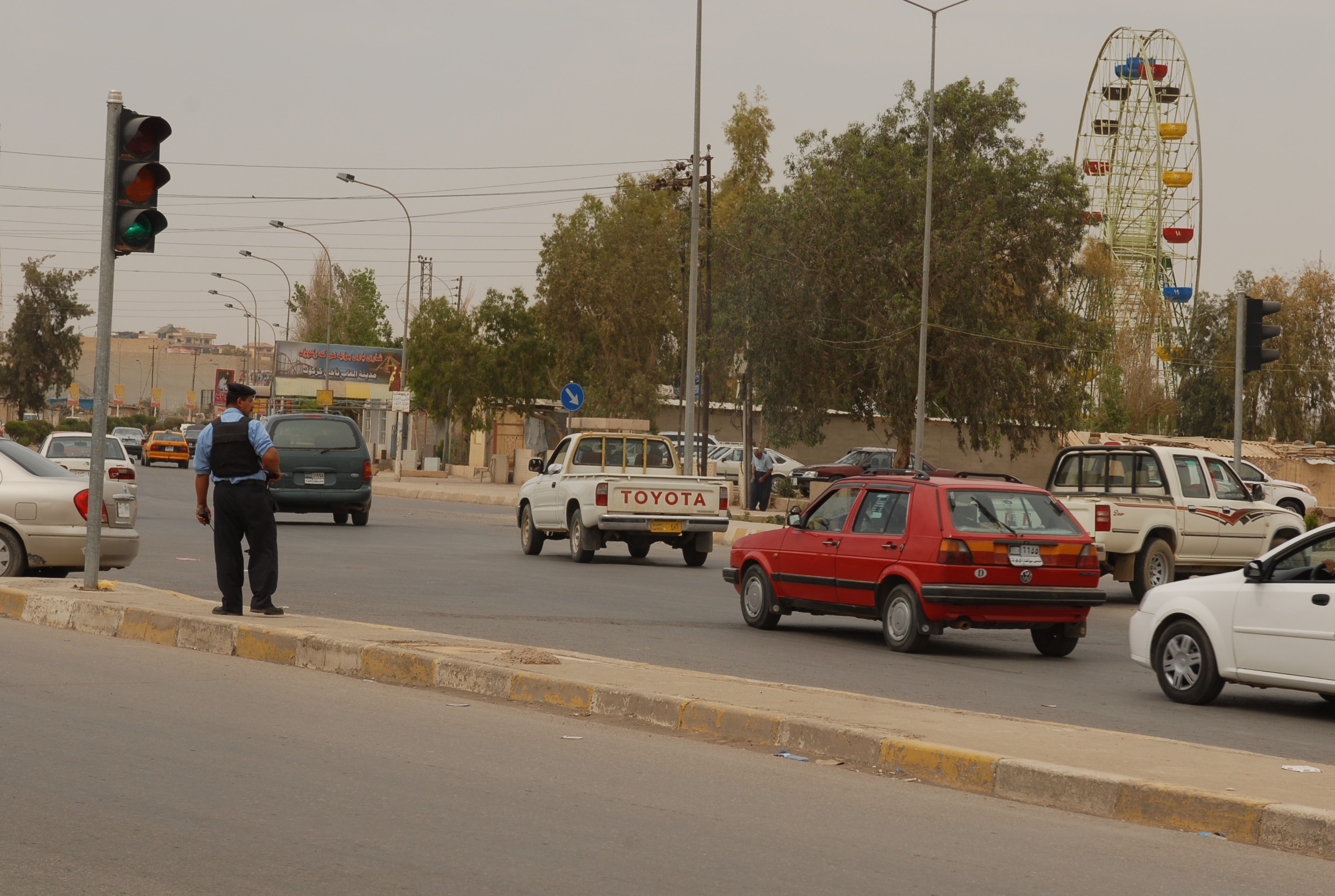FORWARD OPERATING BASE WARRIOR, KIRKUK, Iraq- Imagine a city about the size of San Francisco with large barriers blocking off busy roads and market areas, and no working stop lights.
In Kirkuk city, Iraq, that was the case until recently, when security gains have allowed for city-wide projects to begin removing barriers from around police stations and market areas, as well as repairs to traffic lights.
The barriers, which had been in place for several years, were used throughout the city to help reduce possible vehicle-borne improvised-explosive device threats, and make the job of the Iraqi police easier by controlling the traffic flow in certain areas, said Capt. Brad Hardy, an Akron, Ohio, native and the commander of Headquarters and Headquarters Battery, 3rd Battalion, 82nd Field Artillery Regiment, 2nd Brigade Combat Team, 1st Cavalry Division.
By removing these barriers, we are helping return the city to normal and allowing the residents here to move more freely, which builds confidence in them about the police in the city doing their job of keeping Kirkuk's residents safe, explained Sgt. Ammed Mustafa Ismael, a member of the Emergency Response Unit in Kirkuk.
"The security situation has just improved so much lately that we can remove these large barriers and feel confident about it," said Ismael.
For Kirkuk's residents who make a living by selling goods in markets, the barriers have created obstacles for potential consumers, limiting the number of customers.
"It's a great idea," explained the owner of a small shop about the barrier removal. "It makes a big difference in business and it is a lot easier for people to come and go."
It is time for the city to return to normal, and the barriers were just creating too much congestion in busy areas, said the shop owner.
"The people [of Kirkuk city] were ready to see the barriers go," said Lt. Col. Terry Cook, the commander of 3rd Bn., 82nd FA Regt.
Traffic lights have been turned on again in a few busy intersections of the city.
"The traffic lights are doing their job," explained a Kirkuk city resident. "It has been a lot safer driving around."
"Everyone stops for it," said 1st Lt. Akmad Hussein, an inspector for the Kirkuk city traffic police. "The people of the city are learning to respect the lights, and we have been giving out tickets to those who do not."
"The lights definitely make our job a lot easier," he said.
Workers will continue to remove barriers from around the city as district council members approve more locations, and new traffic lights are established throughout Kirkuk, said Cook.




Social Sharing